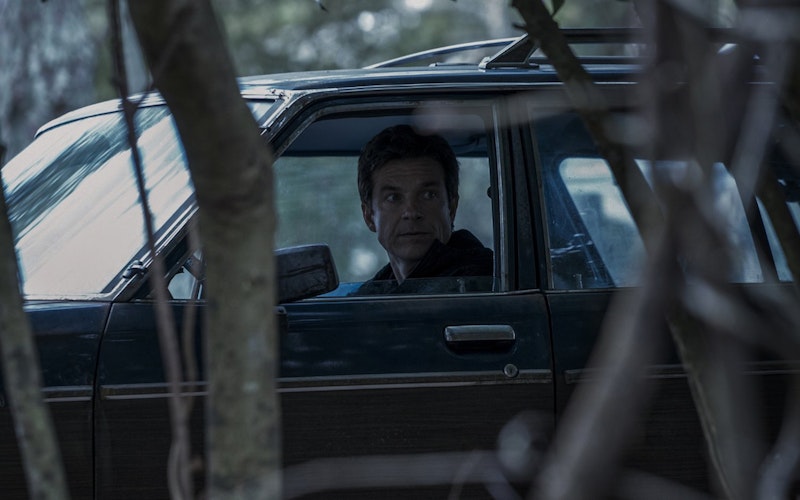
TV
Lost in Ozark
Marty Byrde (Jason Bateman) is a lost man. A middle-aged financial planner with two kids and an unfaithful wife named Wendy (Laura Linney), he lives an uninspiring life in the suburbs of Chicago. It’s a life that appears on the surface to be managed, yet not long after we’re introduced to the Byrdes in the Netflix series Ozark we find them on the run, fleeing to the rural backwaters of the Missouri Ozarks.
In a decision that continues to unravel throughout the show's first 10 episodes, we learn that Marty’s flight to Missouri is related to a money-laundering scheme involving a drug cartel. When the cartel suspects that some of their money has gone missing, Marty talks his captors into giving him a second chance to recoup their losses in the “cash heavy” tourist area of the Ozarks. Given just a month to clean $500,000, the Byrdes pack their suitcases full of cash and head south.
Despite rising to number one on streaming charts over the summer, Ozark received mixed reviews. With comparisons to Netflix’s Bloodline and AMC’s hit Breaking Bad, Ozark was accused by some of borrowing from the already well-worn theme of “middle-aged, white male antiheroes.” While the show admittedly shares much in common with these previous series, Ozark brings a central difference in that its characters have all laid their cards on the table. Marty knows his wife is unfaithful; his two children know why they are on the run; and, most importantly, Marty himself never plays the part of the pitiful victim. He refrains from justifying or blaming. He simply accepts that he has made a definitively bad decision.
At IndieWire, Ben Travers described Ozark as “one of the darkest shows on TV.” Indeed, as dark as the series gets, you are never shocked when it turns even darker. Manipulation and deceit guide nearly every relationship and the depictions of broken human sexuality in the form of prostitution, adultery, and strip clubs is shown without romanticism. The entire series is cast in gray tones and matching, melancholy tunes. Marty, meanwhile, is not periodically redeemed with acts of valor and compassion. In contrast, the Byrde family moves from one horrific decision to the next, constantly bound to an endless cycle of choice-and-consequence that fails to remedy their first fall from grace.
Ozark imagines a world without God, where humans are left to save themselves.
In other words, Ozark refuses to dilute the drink. In Marty Byrde we glimpse humanity in the raw, fumbling towards descending levels of Dante’s Inferno while falsely believing that with just enough effort and ingenuity we can save ourselves. The brilliance of Ozark is its truthful depiction of life without hope. Life all alone. Life without a lifeline. The kind of life many people in our world live daily, were attempts are made to remedy our regrets with a never-ending series of more regrettable decisions. In this way Ozark serves as a modern parable of the age-old adage that “two wrongs do not make a right.” Lies covered up by lies eventually come to light.
Suffice to say the show is absent of any redemptive presence. Even the kids are making dangerous decisions of their own by sleeping with strangers and stockpiling illegally purchased weapons. Everyone, from Marty’s cheating wife to the FBI agents breathing down his neck, are all equally broken people, desperately trying to deal with the private hells they have made for themselves.
And yet, in this unflinching bleakness there is truth. Ozark shows us a world where there is no “higher power,” no “triumph of the human spirit,” no “happy ever after.” It imagines a world without God, where humans are left to save themselves. The isolated woods of the Ozarks is the setting in which many people in the series try to hide. It’s a place where, like the Byrdes, everyone takes a turn sitting alone at the edge of the water, wanting it to swallow them whole.
The Ozarks here are a place of addiction, suicide, adultery, greed, injustice, and crippling despair. No one plans to move there, but we often arrive by a series of poor decisions, and then the road back home all but disappears. It is the epitome of Dietrich Bonhoeffer’s observation that “if you board the wrong train, it is no use running along the corridor in the other direction.” When you are stuck in Ozark, the best thing you can do is surrender any illusions of saving yourself, and board another train entirely.
Topics: TV, Culture At Large, Arts & Leisure